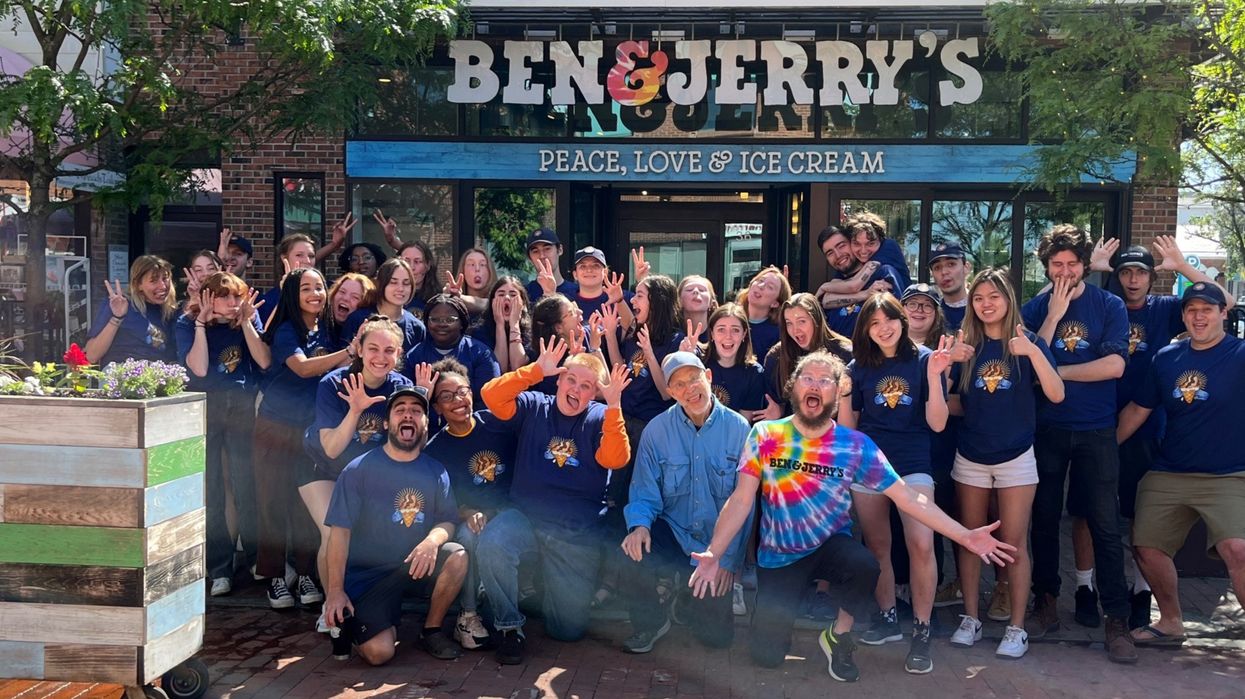Corporate Takeover of the Global Food System Should Not Get UN Approval
The U.N. should address issues such as land concentration, so that peasant agroecology can have a real chance to flourish and make a significant contribution to tackling hunger, climate change, and biodiversity loss.
A U.N. summit on global food systems should be an opportunity to address structural inequalities and tackle hunger. It should be a chance to learn from small-scale producers whose sustainable food practices feed 70% of the world. Instead, next week’s conference in Rome will be a festival of greenwashing, allowing Big Agriculture corporations to tighten their grip on food systems.
This will be the second Food Systems Summit (UNFSS). The first, in 2021 was supposed to address the lack of progress towards the U.N.’s sustainable development goals. It was dubbed a “people’s summit” by the organizers, but caused an outcry among local producers when their calls to roll back the power of transnational corporations were cynically ignored.
Corporations that dominate global food systems, such as Bayer and Nestlé, used the summit to promote greenwashing initiatives rather than address pressing problems such as food speculation and the impact of Covid-19 on world hunger.
The U.N.’s special rapporteur on the right to food Michael Fakhri described it as “inviting the fox right into the henhouse.”
Discussions on eradicating hunger were hosted by the Global Alliance for Improved Nutrition (GAIN), a foundation partly funded by processed food and consumer goods giant Unilever, while transnational corporations were invited to discuss solutions to problems they had largely created. The whole event was an excellent opportunity for them to identify new profit-making ventures and to “capture the global narrative of ‘food systems transformation.’”
More than a thousand small-scale food producer associations and Indigenous Peoples’ groups, academics, and social movements boycotted the event, which was also widely criticized by U.N/ human rights experts and others.
The U.N.’s special rapporteur on the right to food Michael Fakhri described it as “inviting the fox right into the henhouse.”
Agribusiness vs Small Farmers
Food is a common good and access to healthy and nutritious food is a basic human right enshrined in U.N. covenants. These are the issues that governments and the U.N. should focus resources on, and next week’s summit provided a perfect opportunity.
Sadly, it looks set to simply consolidate corporate control over food and natural resources.
Hundreds of grassroots groups have called out the U.N., saying they are still being excluded and claiming the summit is “poised to repeat the failures” of two years ago and want to see fundamental change in food systems.
Here’s the picture as it stands. A handful of agribusinesses control more than 70% of the world’s farmland. Smallholder farmers, fisherfolk, pastoralists, and Indigenous peoples, who use agroecology and other sustainable practices, feed 70% of the world’s population with just 10% of global farmland.
In just the last five years, the world’s nine largest fertilizer companies—with nearly 40% of global synthetic fertilizer sales— have tripled their profits.
Agriculture is responsible for nearly 40% of global greenhouse gas emissions, almost 90% of deforestation, and 80% of biodiversity loss, the bulk of which can be attributed to industrial agriculture and agribusiness operations.
The disruption of global fertilizer supply chains has been a major focus of the U.N.’s response to the global food crisis. But the dangers of market concentration, which make food systems extremely fragile to shocks, have been largely ignored.
In just the last five years, the world’s nine largest fertilizer companies—with nearly 40% of global synthetic fertilizer sales— have tripled their profits. Rocketing fertilizer prices have less to do with disrupted supply chains than quasi-monopolies.
Despite all this—and the growing global obesity pandemic, for which consumption of ultra-processed industrial food bears a major responsibility—the U.N. continues to empower corporations. What it should be doing is addressing issues such as land concentration, so that peasant agroecology can have a real chance to flourish and make a significant contribution to tackling hunger, climate change, and biodiversity loss.
Industrial Agriculture Has Failed
A dystopian future where a handful of corporations control everything we eat is just around the corner, if we do not resist now.
About 60% of all calories consumed worldwide come from just four crops: rice, wheat, corn, and soy. Everyone is vulnerable if we are over-dependent on global corporate-controlled supply chains. Industrial agriculture has failed to address rising levels of hunger and malnutrition across the world, which are now at an estimated 828 million people.
We are facing a stark choice between unsustainable, exploitative, corporate-controlled food systems and diverse, locally sourced ecological food.
The global governance of food is being hijacked by corporate interests. The U.N.’s Food and Agriculture Organization receives less than a third of its $3.25bn budget from the world’s governments, making it dependent on “voluntary contributions”—including from corporations and their proxies—for the rest.
We are facing a stark choice between unsustainable, exploitative, corporate-controlled food systems and diverse, locally sourced ecological food that prioritises the needs and rights of those most affected by the hunger, climate, and health crises.


